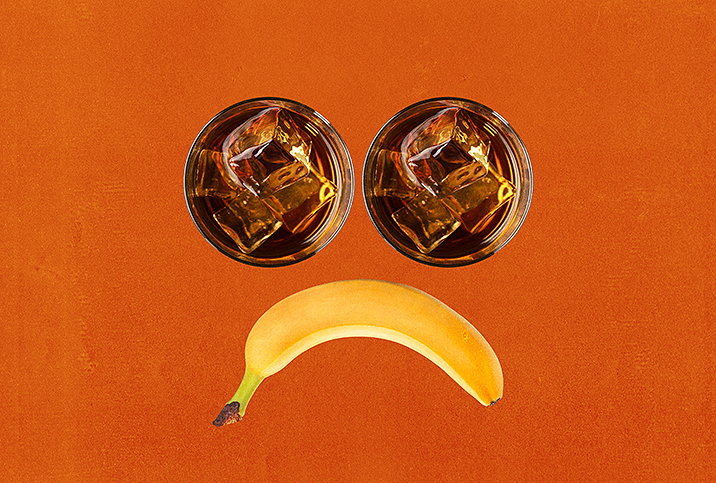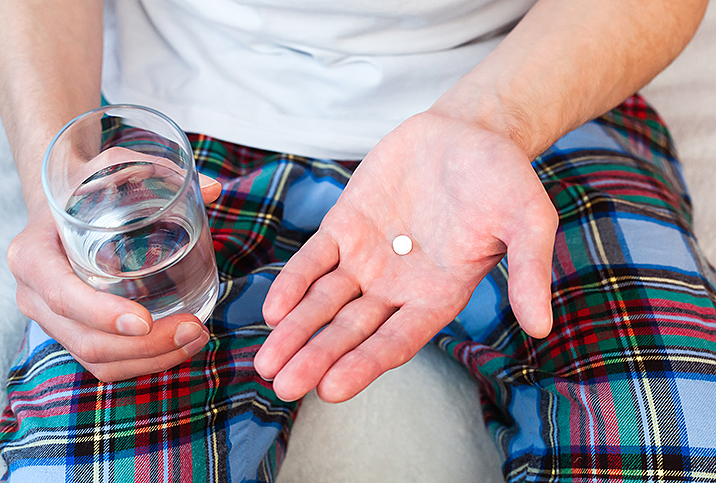What to Expect During ED Tests

During their lives, most men will experience some form of erectile dysfunction (ED). Not only does this affect life in the bedroom, but also the psychological and emotional states of sufferers. Because of the risks and the high prevalence of the condition, men should turn to ED testing, especially between the ages of 40 and 70. Learn what to expect during an ED test and what you can do to prepare.
What you should know before testing
Before you get too concerned about ED, take note that not every man's performance problem is the result of a physical issue. Other factors that a test can't diagnose often contribute to ED. Some of the most cited causes of ED include psychologically induced ED, momentary stress, certain prescription drugs and even the dreaded "whiskey dick" after knocking back a few too many.
If you've experienced any of these potential causes of temporary ED or a strong erection is rarely an issue, you can probably forego testing. But if you're consistently having trouble achieving or maintaining an erection, an ED test is recommended.
Common ED testing procedures
Urologists use a variety of examinations and tests to determine whether you have ED. Discussing the options with your doctor in terms of your comfort and the test's accuracy can help you determine the right choice for you. Beforehand, familiarize yourself with the most common types of tests.
Physical exam
A physical examination is less invasive than you might expect. Typically, it consists of checking your blood pressure, heartbeat and pulse, coupled with a quick visual or physical examination of your penis and testicles to look for any abnormalities.
Erection self-test
Also known as the nocturnal penile tumescence test/stamp test, an erection self-test can discover if you may have ED. But it's indeed a strange test. To conduct this exam, buy a few postage stamps that are still connected—usually four to six, though the number you'll need depends on your girth. Before you go to sleep, pull your penis out, lick one stamp and create a ring around the circumference of your member, overlapping the licked stamp with the other end of the stamp strip to create a sealed ring.
The self-test analyzes whether or not you're getting nocturnal erections, as men without ED typically experience three to five of these a night. If you wake up and the stamps are broken, you may not have ED, but if they're still in place, you may want to contact your doctor.
Other ED tests
If you fail the physical examination or the self-test, doctors may want to conduct more testing. In most cases, this is either a blood or urine test that measures testosterone levels or thyroid function.
A penile injection test, which can be used for diagnosis or treatment of ED, is also fairly common. The doctor injects medicine around the base of the penis to see if you get an erection. The injection is sometimes accompanied by an ultrasound, which involves holding a wand-like device over the blood vessels that supply the penis to create a video image of any possible blood flow problems.
What to expect during an ED test
Depending on which ED test your doctor recommends, you'll need to mentally prepare yourself. However, most tests don't induce a high level of stress.
For a physical examination, just think back to the days of your youth. The sports physical with the "turn your head to the side and cough" exam is a similar sensation, but perhaps less intrusive. Conversely, the self-test won't cause any discomfort at all, and the trip to the post office might be on your to-do list anyway.
Blood and urine tests are relatively straightforward, requiring you to pee in a bottle or give blood. You'll feel a slight needle prick when you're giving blood, but it's no different than when you have routine blood work done.
The one test that scares men is the injection test, but don't worry too much. You'll feel the insertion of the needle, which is similar to giving blood. After that, you shouldn't experience any pain. If you do, let your doctor know immediately.
How to prepare for an ED test
Before any of these tests, you should make at least two concessions for accurate results: Don't drink alcohol for 24 hours and keep a positive mindset. Both of these actions can help you find the true results of your ED test.
If you're diagnosed with ED, don't sweat it too much. Major advancements in ED treatments, including lifestyle changes, prescription drugs and wearable devices, have made the condition much more manageable. Communicate your concerns with your partner and your doctor. When you discover how to solve this issue, you'll realize the ED test was completely worth the effort.


















